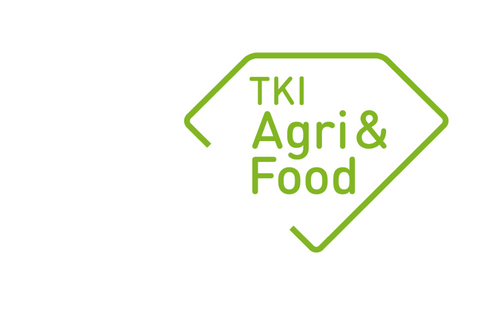Projecttitel: Sesame open – unlocking the potential of organic sesame
Projectnummer: AF-16060
Missie: Gewaardeerd, gezond en veilig voedsel
MMIP: Gezonde voeding, een makkelijke keuze (D2)
Looptijd: 2017 – 2020
Budget publiek: € 480.000
Budget privaat: € 480.000
Projectleider: Peter Ravensbergen
Betrokken partijen: Hak & Partners, Royal Duyvis Wiener, Selet Hulling PLC, Tradin Organic Agriculture, Wageningen University & Research
Sesame (Sesamum indicum) is a nutritious, protein rich oilseed crop. Compared to other countries in Africa, Ethiopia has a well-established sesame production zone with knowledgeable farmers and highly appreciated sesame varieties. In the past 10 years, production has rapidly increased. More than 98% of the sesame, produced in Ethiopia, is exported. Sesame is among the six crops prioritised by the Ethiopian Government. The focus of this project is on the organic sesame value chain, organised from farms, to professional storage and handling, to hulling in Addis Ababa and export to Europe in cooperation with Dutch companies. This value chain is unique as it brings the production and market side together and collaborative relations between companies and farmers are established. This is missing for the conventional sesame which is mainly traded through the Ethiopian Commodity Exchange (ECX). The objective of this project is to build up a knowledge base and to implement innovations that supports the development of competitive, sustainable and inclusive organic sesame values and that impact on the Sesame sector in NW Ethiopia at large resulting from the sharing and scaling of innovations, practices and results. For further development of this organic sesame value chain additional knowledge and innovations are required for three interrelated topics in this value chain:
- Growth: Optimization of organic sesame production by application of best agricultural practises, including seed selection (genotyping), innovative mechanisation for sowing and harvesting, soil fertility management, pest and disease prevention and control for organic production, and post-harvest handling and processing.
- Chain integration: Enhanced farmer – company relations, including entrepreneurial capacity development of cooperatives and the design and establishment of innovative monitoring systems at farm level and a tracking and traceability with certification and quality control for the Ethiopian sesame chain.
- Added value generation: Development of new value adding propositions, for diversification of processed sesame products and markets and also from field crop residues and waste and side streams of processing. Plant material or seed waste, also after oil extraction, can be used for new food ingredients or biobased materials.
The result of this project will be (i) the building up of a knowledge base and implementation of innovations for the development of efficient and social organic production and marketing systems in Ethiopia and (ii) creating more products of higher value for the national and international market. This will bring economic benefits to producers of sesame seeds and other stakeholders in the chain, scientific benefits for developing new innovations and best practices for organic production and trade, and societal benefits like cash availability for small holders, organic production, new jobs, and best quality product for consumers.
Links:
Deel dit bericht

